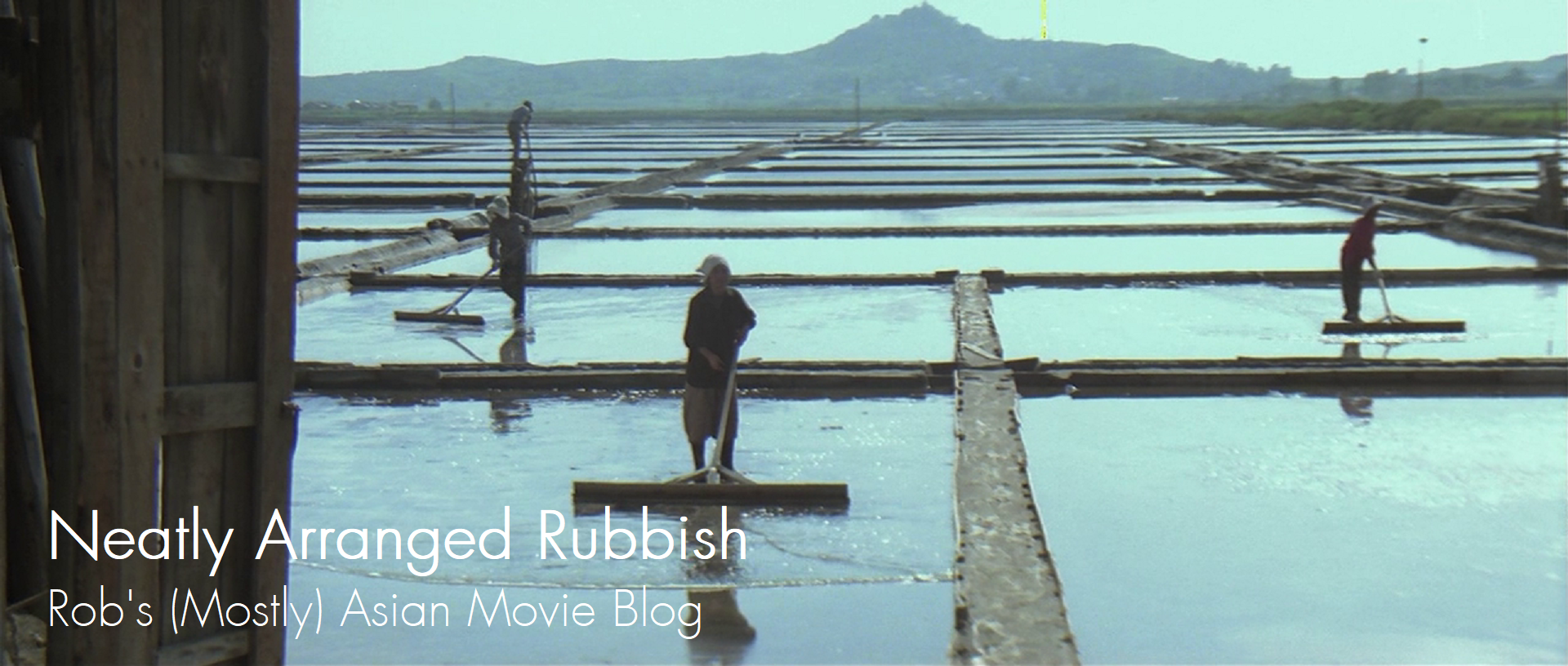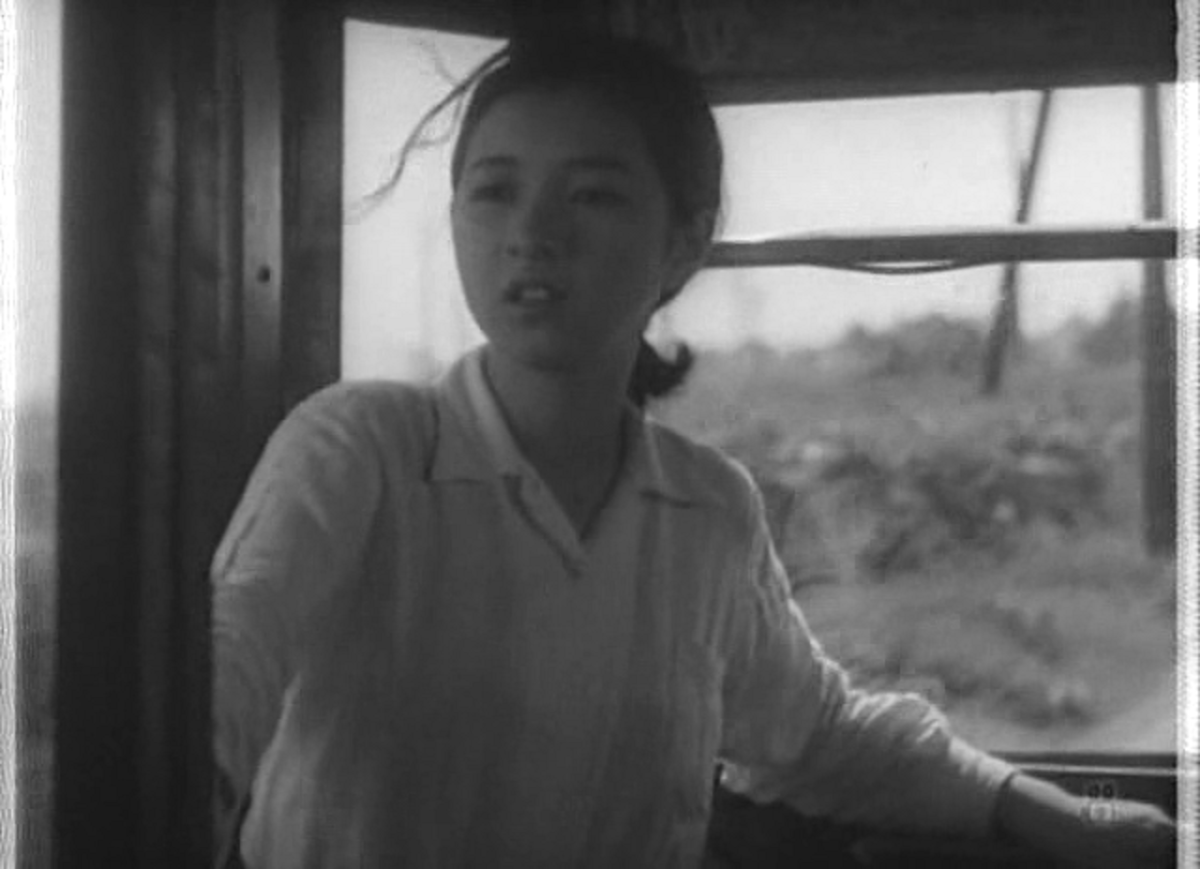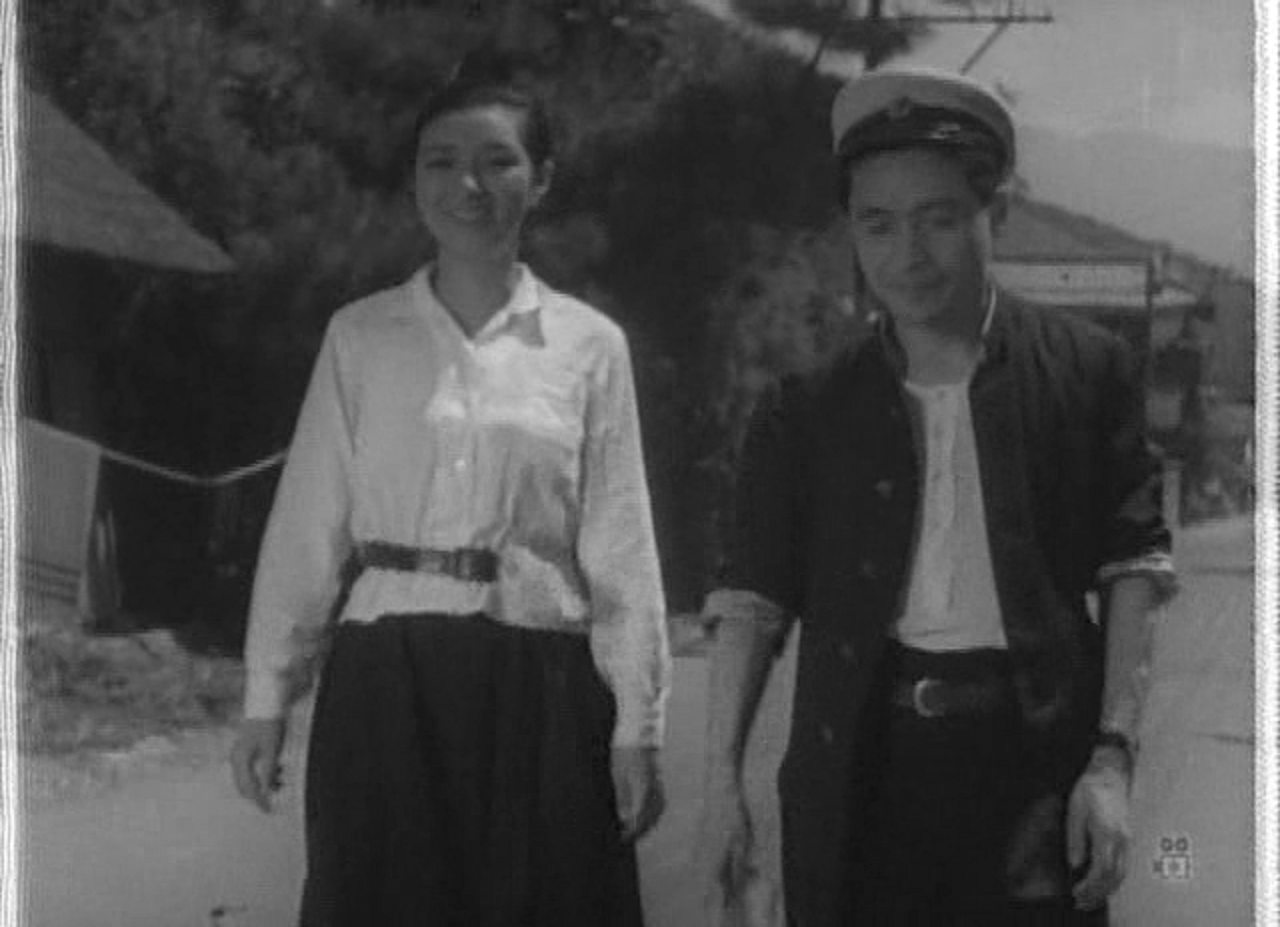Last Updated on January 25, 2021 by rob
Hideko Takamine (displaying real star wattage here even though she was only 17 at the time) plays the titular heroine Okoma, who works for a financially struggling bus company in a small, sleepy town and comes up with the idea of giving a speech to passengers about places of interest on her local bus route in order to drum up business. After employing a somewhat disreputable local writer (Daiijiro Natsukawa) to pen Okoma’s speech – which allows Naruse to insert a few industry in-jokes of the ‘I’m a writer, I’m used to not being paid’ variety – the plot throws up a succession of obstacles through which Okoma and her driver Sonoda (Kamatari Fujiwara) remain unfailingly cheerful.
All looks like it’s going to plan until the climax cuts between a radiant Okoma performing her narration to a series of passengers and her manager (Yotaro Katsumi) back at the depot concluding the sale of the company to an asset stripper. The effect is to lend Okoma’s speech a genuinely poignant quality. The poor girl thinks she’s helping the company unaware that it’s too late; the company can’t be saved. This element of grit in an otherwise gentle and observant comedy is what to me distinguishes Mikio Naruse from his contemporary Yasujiro Ozu. And although it might be pushing things a bit, on reflection, I was struck by the way the lies told to Japan’s people by the Government of the day seem mirrored here in the way Okoma and her equally youthful driver are manipulated by an untrustworthy employer who encourages them toward a brighter tomorrow with false promises of success.


